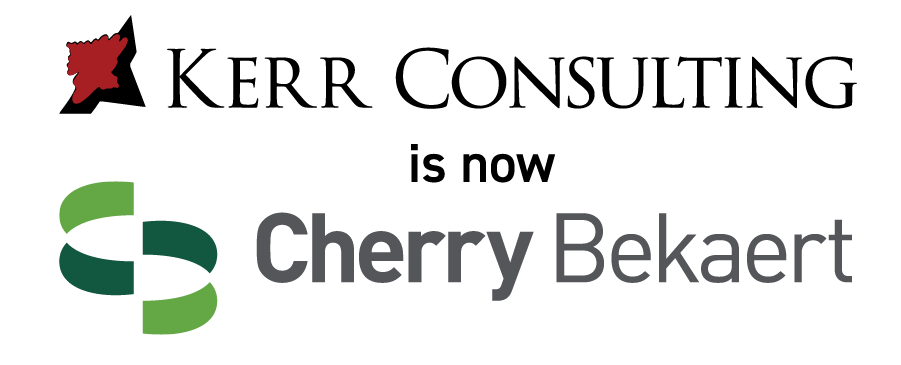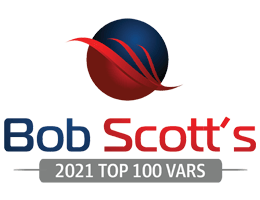Desktop Accounting Software: Simplifying Your Financial Management

Introduction to Desktop Accounting Software Trends
In the ever-evolving world of accounting, desktop accounting software remains a vital tool for businesses of all sizes. Despite the growing popularity of cloud-based solutions, desktop accounting software has continued to evolve, integrating new technologies to meet the diverse needs of today's market. This section delves into the current landscape of desktop accounting software, highlighting how it's adapting to new trends and maintaining its relevance in the digital age.
In the quest to identify the best financial software for small business, it's essential to explore the range of accounting software services available in today's market. Small business desktop accounting software has evolved, offering features that cater to the unique needs of smaller enterprises, blending user-friendliness with comprehensive financial management tools. Whether you're an entrepreneur or run a growing company, choosing the best account software for small business can be the key to streamlined financial tracking, improved accuracy, and better overall financial decision-making. This guide aims to help you navigate through the options and select a solution that aligns perfectly with your business needs.
Overview of Current Landscape
The current landscape of desktop accounting software is marked by a blend of traditional functionality and innovative features. Businesses continue to rely on it for its robustness, security, and comprehensive features that cater to complex accounting needs. The integration of newer technologies like automation and AI has given desktop software a new lease on life, making it more efficient and user-friendly. This evolution ensures that desktop accounting software remains a dependable choice for businesses that prioritize control, security, and powerful offline capabilities.
The Rise of Automation and AI in Accounting
Embracing the future, the accounting sector is witnessing a significant shift with the incorporation of automation and Artificial Intelligence (AI). These advancements are not just transforming cloud-based platforms but are also increasingly becoming a part of desktop accounting software. This integration is redefining how businesses handle their financial processes, offering more precision and efficiency.
Benefits of Automated Processes
Automation in desktop accounting software has revolutionized routine tasks such as data entry, bank reconciliation, and report generation. This automation reduces manual efforts, minimizes errors, and speeds up processes, allowing accounting professionals to focus on more strategic aspects of financial management. By automating repetitive tasks, businesses can expect a noticeable improvement in productivity and accuracy, leading to more informed decision-making.
AI's Role in Streamlining Accounting Tasks
AI is a game-changer in the realm of desktop accounting software. It brings capabilities like predictive analysis, anomaly detection, and intelligent data categorization. AI enhances the software’s ability to handle complex tasks such as tax compliance, fraud detection, and financial forecasting with greater precision. The incorporation of AI transforms desktop accounting software into a more proactive tool, capable of providing valuable insights and foresight into financial health and trends.
Adopting Cloud-Based Accounting Solutions
While desktop software holds its ground, there's a growing trend toward adopting cloud-based accounting solutions. This shift is driven by the need for accessibility, scalability, and collaboration in today's mobile and interconnected world. Let's explore the advantages of cloud accounting and some of the popular platforms leading this change.
Advantages of Cloud Accounting
Cloud accounting software offers unparalleled advantages, primarily in terms of accessibility and real-time data synchronization. Users can access financial data from anywhere, ensuring that decision-makers and accounting teams are always in sync. Cloud solutions are also scalable, making them ideal for growing businesses that need to adapt quickly. Additionally, they offer subscription-based models, which can be more cost-effective for small to medium-sized enterprises.
Popular Cloud Accounting Platforms
Several cloud accounting platforms have gained popularity due to their user-friendly interfaces and comprehensive features. Platforms like QuickBooks Online, Xero, and FreshBooks lead the pack, offering solutions tailored for small to medium-sized businesses. These platforms provide a range of functionalities from basic bookkeeping to advanced financial reporting, often integrating seamlessly with other business applications to create a cohesive business management ecosystem.
The accounting software landscape is continuously evolving, with both desktop and cloud-based solutions offering unique benefits. At Kerr Consulting, we understand the importance of staying ahead of these trends and are committed to helping businesses navigate these choices, ensuring they have the right tools to manage their financials effectively and efficiently.
Data Analytics and Forecasting in Accounting
The accounting world is rapidly embracing data analytics and forecasting as crucial components of financial management. These powerful tools are transforming the way businesses understand their finances, allowing them to make more informed and strategic decisions.
The Growing Importance of Data Analytics
Data analytics in accounting has become essential, providing deep insights into financial performance, customer behavior, and market trends. By effectively analyzing large volumes of financial data, businesses can uncover patterns and insights that were previously hidden. This level of understanding is invaluable for strategic planning, risk management, and identifying new growth opportunities. As such, data analytics is not just a tool; it's a pathway to smarter, data-driven decision making.
Tools for Budgeting and Financial Forecasting
In the realm of budgeting and financial forecasting, the right tools can be the difference between guesswork and precision. Modern software solutions offer sophisticated features like predictive modeling, scenario analysis, and real-time financial dashboards. These tools allow businesses to create more accurate budgets, forecast future trends, and adjust their strategies in real-time. By leveraging these technologies, businesses can better prepare for future financial challenges and capitalize on potential opportunities.
Digital Transformation and Accounting
Digital transformation is reshaping the accounting industry, driving businesses to adopt digital technologies to streamline operations, enhance efficiency, and stay competitive.
Embracing Digital Technology in Finance
The integration of digital technology in finance is no longer an option but a necessity. Technologies such as cloud computing, AI, and blockchain are revolutionizing traditional accounting practices. They streamline operations, from payroll processing to complex financial reporting, making them more efficient and less prone to error. Embracing these technologies enables businesses to stay agile and responsive in a rapidly changing financial landscape.
Supporting Business Strategy with Digital Tools
Digital tools do more than just automate tasks; they support and inform overall business strategy. With real-time financial data and analytics, businesses can make strategic decisions with confidence. These tools provide a comprehensive view of financial health, helping identify areas for cost savings, investment opportunities, and potential risks. By aligning accounting practices with business strategy through digital tools, companies can drive growth and improve their competitive edge.
Ensuring Data Security in Accounting Software
In an era where data breaches are increasingly common, ensuring the security of accounting software is paramount for protecting sensitive financial information.
Risks and Solutions for Data Breaches
The risks associated with data breaches in accounting software can be significant, ranging from financial loss to reputational damage. To combat these risks, it's essential to adopt robust security measures. This includes using software with strong encryption, implementing regular security audits, and ensuring compliance with data protection regulations. Businesses should also be aware of the latest cybersecurity threats and train their staff to recognize and respond to potential breaches.
Best Practices for Cybersecurity in Accounting
Adopting best practices in cybersecurity is crucial for safeguarding accounting data. This includes using multi-factor authentication, regularly updating software, and backing up data securely. It's also important to establish clear policies for data access and to educate employees about cybersecurity risks and protocols. By proactively managing cybersecurity, businesses can significantly reduce the risk of data breaches and ensure the integrity and confidentiality of their financial data.
In conclusion, the integration of data analytics, digital transformation, and stringent data security measures in accounting is not just a trend but a fundamental shift in how businesses manage their finances. Kerr Consulting is at the forefront of this evolution, empowering businesses with the tools and knowledge to thrive in this new digital era.
The Evolving Role of Accountants
The accounting profession is undergoing a significant transformation. With advancements in technology and changing business landscapes, the role of accountants is rapidly evolving, paving the way for a more dynamic and strategic function in businesses.
From Transactional to Analytical Roles
Gone are the days when accountants were seen primarily as number crunchers and record keepers. Today, with the automation of routine tasks, accountants are shifting from transactional roles to more analytical ones. This shift involves a greater focus on interpreting financial data, providing strategic advice, and aiding in decision-making processes. Accountants are now expected to not only understand the numbers but also to provide insights into what those numbers mean for the business. This evolution positions accountants as strategic partners who can influence future business strategies and growth.
The Importance of Soft Skills and Emotional Intelligence
In this new era, the importance of soft skills and emotional intelligence in the accounting profession cannot be overstated. Technical knowledge remains crucial, but the ability to communicate complex financial information in an understandable way, build relationships with stakeholders, and collaborate effectively with other departments is equally important. Emotional intelligence, which includes skills like empathy, adaptability, and conflict resolution, plays a key role in navigating the interpersonal aspects of business and enhancing team dynamics. These soft skills help accountants to be more effective in their roles and to contribute more significantly to organizational success.
Conclusion: Preparing for the Future of Accounting
The accounting field is at a pivotal point of change. As we look towards the future, it's clear that the role of accounting in business is more vital than ever.
Key Takeaways and Future Outlook
- Adaptation to Technological Advancements: Accountants need to continuously adapt to new technologies that automate traditional processes, allowing them to focus on more value-added activities.
- Shift to Strategic and Analytical Roles: The modern accountant is increasingly taking on roles that require analytical thinking and strategic planning.
- Importance of Continuous Learning: With the rapid pace of change in the accounting field, continuous learning and upskilling have become essential.
- Growing Need for Soft Skills: Soft skills and emotional intelligence are becoming critical for accountants to effectively communicate and collaborate.
- Embracing Digital Transformation: The future of accounting lies in embracing digital transformation and leveraging it to drive business strategy and growth.
At Kerr Consulting, we understand these evolving dynamics and are dedicated to preparing businesses and their accounting teams for the future. By staying abreast of the latest trends, adopting new technologies, and fostering a culture of continuous learning and development, we can ensure that the accounting profession remains robust, relevant, and ready to meet the challenges of tomorrow.








